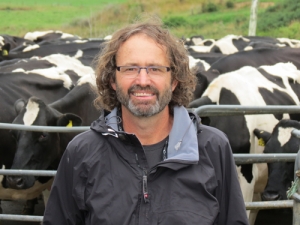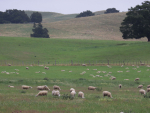No wonder they say, ‘Those who can, do; those who can’t, teach’.
Massey University academic and vehement dairy farming critic Mike Joy, with a couple of colleagues, has authored a paper emotively titled, ‘NZ Dairy Farming – Milking Our Environment for All Its Worth’. His claim is that in a worst-case scenario, costs to society from environmental harm caused by farming could equal the economic benefits of the dairy industry.
Unfortunately, Joy and his colleagues – aptly named Death and Foote – have produced a sloppy piece of work with more holes in it than a lifetime university lecturer’s sandals.
Federated Farmers has accused Massey University of “supporting attempts to use academia to tarnish the dairy industry by pretending a student’s academic hypothesis is established fact”.
Feds dairy chair Andrew Hoggard says the farmer lobby supports the authors’ desire for accurate reporting of real costs. “But the thesis only looks at the negative externalities – under very poor and inaccurate assumptions – of the dairy industry while ignoring the positives. Therefore it could not possibly arrive at an accurate conclusion,” Hoggard says.
“Some of these inaccuracies are blaringly obvious, such as the value of the dairy industry – cited as $16.6 billion, when it is well known it is $18.1 billion – but there are other inaccurate facts and figures that if you weren’t in the field you would have to take their word for.”
The Feds have also discovered inaccuracies in the ‘report’s’ claims about drinking water standards in Taranaki and its calculations of nitrate level clean-up costs.
But it is not just farmers who have issues with this paper. Fellow academic Professor Jacqueline Rowarth, Waikato University, has questioned the methodology and accuracy of the paper’s conclusions. “We need our academics to produce material that helps us move forward and this paper is damaging,” Rowarth says.
Meanwhile Professor Frank Scrimgeour, director of the Institute for Business Research at Waikato University, says while the paper may have raised awareness of environmental clean-up costs, he has criticised its conclusions. “The individual components… cannot be added together credibly in the way they’ve done to say this is the outcome. It’s sloppy research.”
Joy and his colleagues do their cause, and Massey University, more damage than good by producing such a flawed piece of work. We all agree water quality is an important issue and any negative impacts – environmental and economic – need to be closely looked at. But sloppy work like this only adds to the growing reputation of certain ‘academics’ and their personal biases.



















